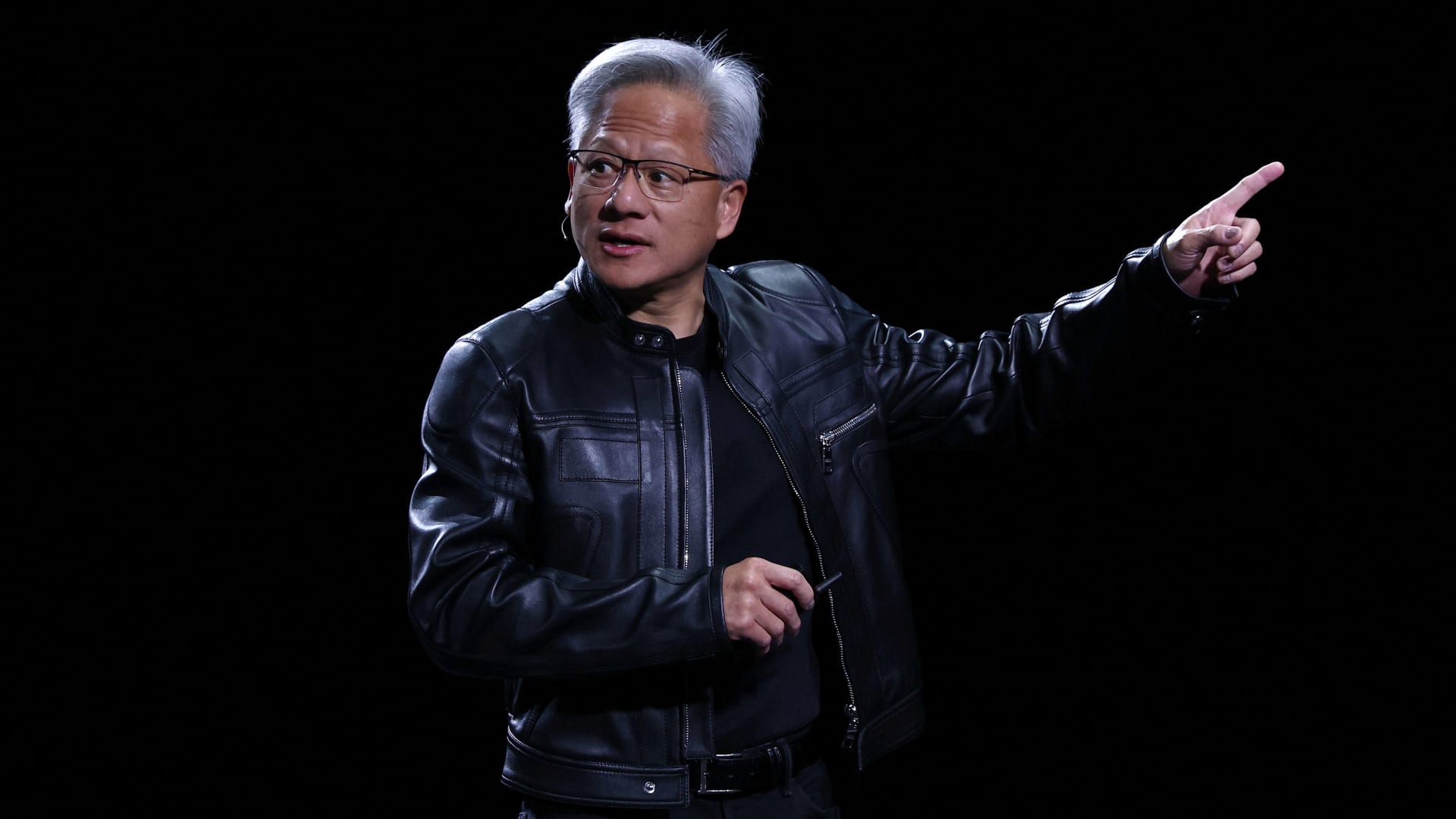Navigating Market Turmoil: A Deep Dive into Jim Cramer’s Insights
The Cramer Compass: A Beacon in Volatile Markets
In the ever-shifting landscape of financial markets, volatility is an inevitable companion. Investors, much like sailors navigating stormy seas, require a reliable compass to guide them through turbulent waters. Jim Cramer, the charismatic host of CNBC’s “Mad Money,” has established himself as a trusted navigator, offering his unique insights into the forces shaping the market. His recent commentary provides a lens through which to examine the current state of the market, the lingering impact of former President Trump’s economic policies, and the strategic maneuvers of tech giant Nvidia in the Chinese market.
Unraveling the “Pockets of Turmoil”
Cramer’s concept of “pockets of turmoil” serves as a critical framework for understanding the nuanced dynamics of the market. These pockets represent areas of instability that, while not indicative of a broader market collapse, can significantly impact specific sectors or companies. The origins of these pockets are multifaceted, often stemming from a confluence of factors:
Sector-Specific Headwinds
Certain industries are particularly susceptible to disruption, whether from regulatory changes, shifting consumer preferences, or technological advancements. For instance, the energy sector has faced significant volatility due to fluctuating oil prices and the global shift towards renewable energy sources. Similarly, the retail industry has been grappling with the rise of e-commerce, leading to the decline of traditional brick-and-mortar stores.
Company-Specific Issues
Individual companies can also become pockets of turmoil due to internal challenges. A company experiencing declining sales, increased competition, or management turmoil can see its stock price plummet, creating a ripple effect in the broader market. For example, a tech company facing antitrust investigations or a pharmaceutical firm grappling with patent expirations can become focal points of market instability.
Geopolitical Risks
The interconnected nature of the global economy means that geopolitical events can have far-reaching implications. Trade disputes, political instability, or sanctions can create uncertainty and negatively impact companies with significant exposure to affected regions. The ongoing tensions between the U.S. and China, for instance, have created pockets of turmoil in the technology and manufacturing sectors.
Shifting Investor Sentiment
Investor perception plays a pivotal role in market dynamics. News events, economic data, or even social media trends can trigger sudden shifts in sentiment, leading to rapid sell-offs in specific stocks or sectors. The cryptocurrency market, for example, has experienced extreme volatility due to changes in investor sentiment, often driven by regulatory announcements or high-profile endorsements.
The Trump Effect: A Lingering Market Influence
Jim Cramer has underscored the enduring impact of former President Donald Trump’s economic policies on the financial markets. Trump’s tenure was marked by a series of unconventional approaches to trade, regulation, and fiscal policy, which continue to shape market dynamics. The key aspects of Trump’s economic legacy include:
Trade Wars and Tariffs
Trump’s imposition of tariffs on goods from China and other countries was a defining feature of his economic policy. While intended to protect domestic industries, these tariffs led to retaliatory measures and disrupted global supply chains. The resulting uncertainty created pockets of turmoil in sectors heavily reliant on international trade, such as manufacturing and agriculture.
Deregulation
Trump’s administration rolled back numerous regulations, particularly in the energy and environmental sectors. While proponents argued that deregulation would stimulate economic growth, critics raised concerns about potential risks to public health and safety. The long-term impact of these policy changes remains a subject of debate, with some industries benefiting from reduced regulatory burdens while others face increased scrutiny.
Tax Cuts
The Tax Cuts and Jobs Act of 2017 was a significant piece of legislation that reduced corporate and individual income taxes. Initially, this boosted corporate profits and stock prices, contributing to a bullish market sentiment. However, the long-term implications of these tax cuts on the national debt and economic growth have sparked ongoing discussions among economists and investors.
Nvidia’s China Gambit: Balancing Act in a High-Stakes Market
Nvidia, a leader in graphics processing units (GPUs) and artificial intelligence (AI) chips, has been a major beneficiary of the growing demand for AI technology. However, its strategy for the Chinese market is fraught with challenges, as highlighted by Jim Cramer. The Chinese market represents a significant opportunity for Nvidia, but several factors complicate its expansion:
US Export Controls
The U.S. government has imposed restrictions on the export of advanced AI chips to China, citing national security concerns. These restrictions limit Nvidia’s ability to sell its most advanced products in China, potentially hindering its growth in this critical market. The company must navigate these regulatory hurdles while maintaining its competitive edge.
Competition from Domestic Players
Nvidia faces increasing competition from domestic Chinese chipmakers, who are receiving government support to develop their own AI chips. Companies like Huawei and Alibaba have made significant strides in the AI chip market, posing a threat to Nvidia’s market share. The company must innovate and differentiate its products to stay ahead of the competition.
Geopolitical Tensions
The ongoing tensions between the U.S. and China add another layer of complexity to Nvidia’s strategy. The geopolitical landscape can shift rapidly, impacting trade relations and market access. Nvidia must remain agile and adaptable, ready to pivot its strategy in response to changing geopolitical dynamics.
Cramer’s Actionable Insights: Navigating the Storm
Jim Cramer’s commentary offers more than just analysis; it provides actionable advice for investors seeking to navigate the current market environment. Based on his recent insights, here are some key strategies to consider:
Selective Investing
In a market characterized by pockets of turmoil, selectivity is paramount. Investors should focus on companies with strong fundamentals, competitive advantages, and growth potential. Conducting thorough research and due diligence can help identify these opportunities and avoid potential pitfalls.
Diversification
Diversification remains a cornerstone of sound investment strategy. By spreading investments across various sectors, geographies, and asset classes, investors can mitigate the risks associated with market volatility. A well-diversified portfolio can help weather the storms of market turbulence.
Staying Informed
The market is influenced by a myriad of factors, from economic data to geopolitical events. Staying informed about these developments can provide valuable context for investment decisions. Regularly reviewing market news, economic indicators, and company earnings reports can help investors stay ahead of the curve.
Risk Management
Effective risk management is crucial in volatile markets. Tools such as stop-loss orders can help protect capital by automatically selling a stock if it reaches a predetermined price. Additionally, maintaining a balanced portfolio and avoiding overconcentration in any single investment can help manage risk.
Avoiding Panic
Market volatility can trigger emotional reactions, leading to impulsive decisions. However, it’s essential to maintain a long-term perspective and avoid making decisions based on short-term market fluctuations. Sticking to a well-defined investment strategy can help investors navigate the ups and downs of the market.
Conclusion: Steering Through the Storm
Jim Cramer’s insights provide a valuable roadmap for navigating the complexities of the current market environment. By understanding the pockets of turmoil, the lingering impact of Trump’s economic policies, and the strategic challenges facing Nvidia in China, investors can make more informed decisions. While market volatility is an inherent part of investing, a disciplined and well-informed approach can help investors steer through the storm and achieve their financial goals. In the words of Cramer himself, “The market is a discounting mechanism. It’s always looking ahead, and it’s always trying to figure out what’s going to happen next.” By staying ahead of the curve, investors can position themselves for success in an ever-changing market landscape.





